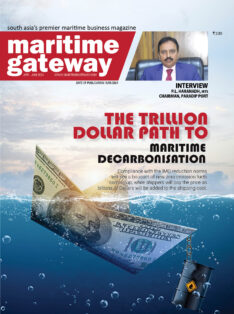Sri Lanka’s Colombo Port City Economic Commission will give its own tax breaks running up to 40 years and exempt businesses from a number of laws including an exchange control law in its area of authority, a draft bill to be presented in parliament shows.
For an enterprises defined as a ‘Business of Strategic Importance’ up to 40 years in tax incentives could be given by the Commission.
The Port City Chairperson and members would be appointed by the President of Sri Lanka.
The Commission could give exemptions to businesses from income tax, value added tax, excise tax, debit tax, customs duties, ports and airport levy, Sri Lanka Export Development Act levies, Betting and Gaming casino laws and labour laws.
Incentives already given under the Strategic Development Act will automatically be deemed to have been given by the Economic Commission.
Board of Investment of Sri Lanka, the UDA and Municipal council laws would not apply to the Port City Special Economic Zone.
In countries with very high level of foreign direct investment such as Vietnam, multiple authorities approve investments. The Southern Ho Chi Minh City ares (formerly Saigon) outperforms all other regions.
It is not clear whether sales of goods and services within the Port City Economic Zone would also be exempt from value added tax and import duties.
However the Commission would be authorised to set an exit tax on goods purchased from within the special zone.
“A citizen of Sri Lanka or a resident may utilize any retail facilities or services within the Area of Authority of the Colombo Port City at restaurants, cinemas, entertainment facilities, shopping facilities, or parking facilities, upon making related payments, in Sri Lanka Rupees,” according to the draft law.
“Any levy as may be required to be paid by a citizen of Sri Lanka or a resident on goods purchased at retail facilities…when leaving the Area of Authority of Colombo Port City, shall be as prescribed.”
Sri Lanka has high import duties to give excessive protectionist profits to so-called ‘cronies’ running import substitution tax arbitrage business, who channel the difference between world price and import tax (arbitrage) to their own pockets.
Under the earlier Strategic Development Act and Board of Investment capital import for construction or big businesses was freed from import duty and value added tax, which ordinary house builders have to pay.
In the first five years after the law is enacted the Port City Commission could also permit people to “engage in business from a designated location in Sri Lanka, outside the Area of Authority of the Colombo Port City, as may be approved by the President” or the minister in charge.
“Such business shall, for such period of five years be entitled to all the privileges accorded to, and be deemed for all purposes to be, a business situated within and engaged in business, in and from, the Area of Authority of the Colombo Port City.”
Salaries of workers within the zone would be dollarized, protecting them from currency depreciated by the Monetary Board of the central bank through the operation a regime without a credible anchor.
Sri Lanka had earlier allowed deposit dollarization (resident and non-resident forex accounts), liability dollarization (borrowing in dollars) but not denomination of salaries.
People in most countries are usually forced to use a unsound money through a ‘legal tender’ provision for a money monopoly contained in a central bank law or through a separate law through which the population in progressively impoverished and their saving expropriated through depreciation.
Economic hubs such as Singapore, Hong Kong have have currency boards and Dubai also runs a currency board-like-system and do not print money to generate monetary instability in a failed attempt to boost growth.
The Colombo Port City Commission will be empowered to give exemptions from the following law.
1. The Urban Development Authority Act, No. 41 of 1978
2. The Municipal Council Ordinance (Chapter 252)
3. The Commercial Mediation Centre of Sri Lanka
Act, No. 44 of 2000
4. The Town and Country Planning Ordinance (Chapter 269)
5. The Strategic Development Projects Act, No. 14 of 2008
6. Public Contracts Act, No. 3 of 1987
7. The Board of Investment of Sri Lanka Law, No. 4 of 1978
The following laws will not apply within the Colombo Port City Special Economic Zone.
1. The Inland Revenue Act, No. 24 of 2017
2. The Value Added Tax Act, No. 14 of 2002
3. The Finance Act, No. 11 of 2002
4. The Finance Act, No. 5 of 2005
5. The Excise (Special Provisions) Act, No. 13 of 1989
6. The Debit Tax Act, No. 16 of 2002
7. The Customs Ordinance (Chapter 235)
8. The Ports and Airports Development Levy
Act, No. 18 of 2011
9. The Sri Lanka Export Development Act, No. 40 of 1979
10. The Betting and Gaming Levy Act, No. 40 of 1988
11. Termination of Employment of Workmen (Special Provisions)
Act, No. 45 of 1971
12. The Entertainment Tax Ordinance (Chapter 267)
13. The Foreign Exchange Act, No. 12 of 2017
14. Casino Business (Regulation) Act, No. 17 of 2010
Source : Economy Next







